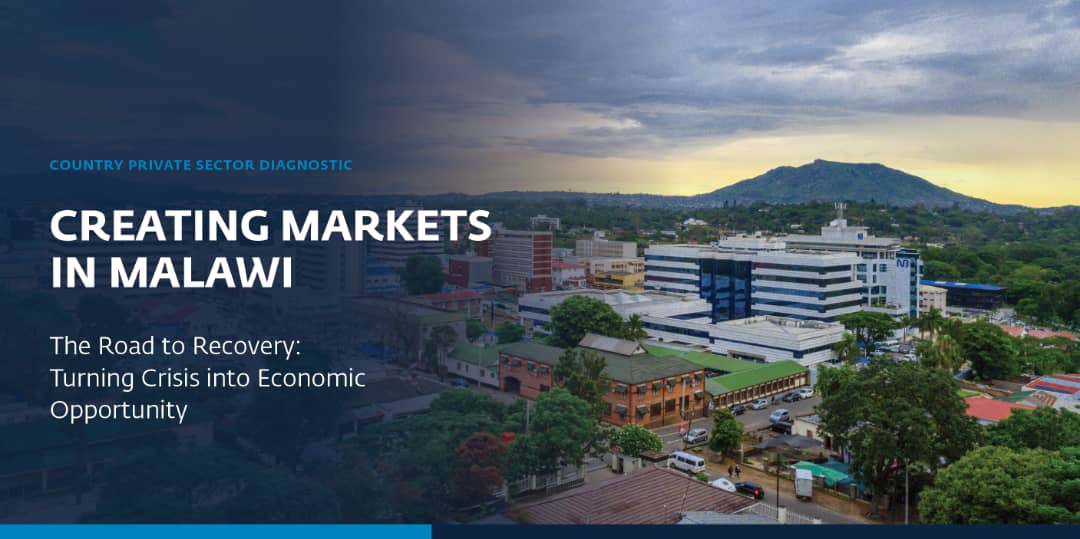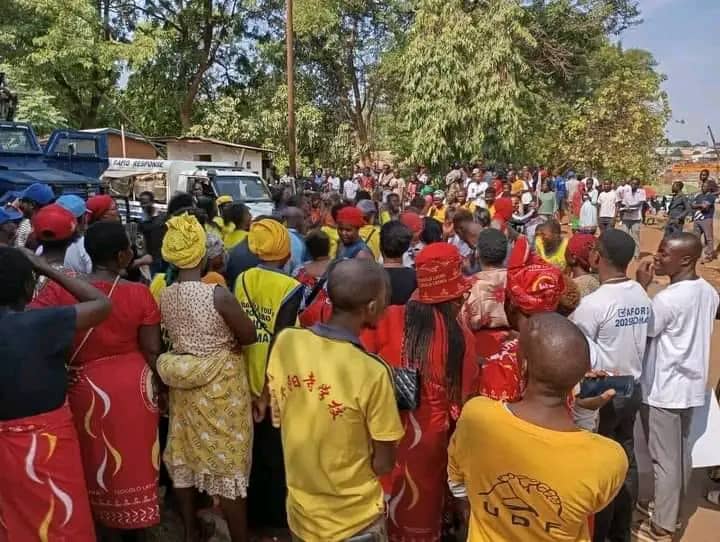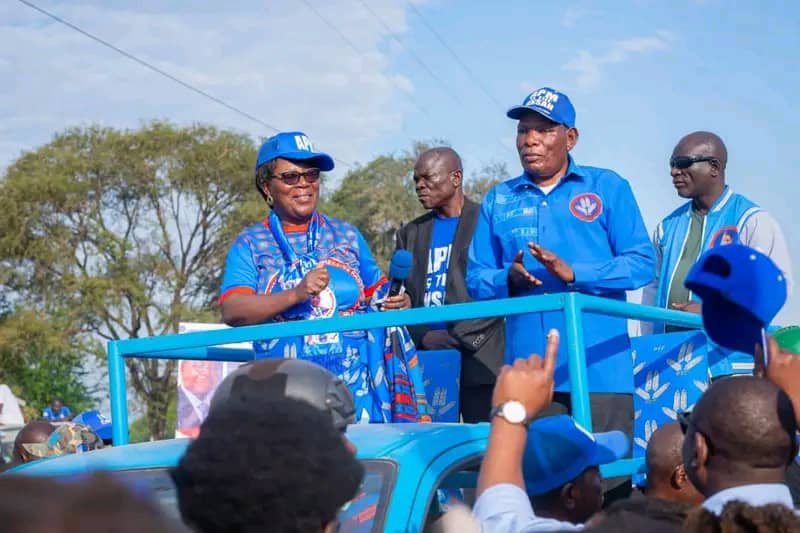By Burnett Munthali
The Democratic Progressive Party (DPP) recognizes that a thriving private sector and industrial base are the backbone of a strong and sustainable economy.
The party is committed to creating jobs, boosting revenue, generating foreign exchange, and empowering Malawians through targeted economic interventions.
In its 2025–2030 manifesto, the DPP presents a clear plan to support private sector growth, promote industrialization, empower SMEs, and expand trade both locally and internationally.
The party’s vision for economic growth emphasizes a vibrant industry and private sector as engines for job creation, revenue expansion, and foreign exchange generation.
One of the key goals is to increase manufacturing’s contribution to Malawi’s GDP from the current 9.37% to 15% within five years.
DPP fires back at Kabambe over Mutharika criticism
In terms of private sector development, the DPP aims to address supply-side constraints to harness the potential of Malawi’s youthful and skilled population.
Supportive trade-related infrastructure will be created to encourage investment and facilitate business growth across the country.
The industrial sector will be revitalized, with particular focus on agro-processing, mining, and competitive service industries.
Investor-friendly policies will be implemented through enabling laws, deployment of ICT and innovation, and development of skilled human resources.
The DPP plans to establish Special Economic Zones (SEZs) and industrial parks in Luwinga (Mzuzu), Magwero (Lilongwe), Chigumula, and Matindi (Blantyre).
Investment in energy will be increased, and the energy mix rationalized to support industrial development.
Election unrest looms as Malawi’s smartmatic controversy deepens
Graduates and skilled manpower will be linked to SMEs, cooperatives, and large enterprises to enhance productivity.
Industrial clusters for metal fabrication, wood products, electronics, garments, leather, and oil-seed products will be developed in strategic townships.
The Malawi Investment and Trade Centre (MITC) and Investment Fora will be revitalized to attract investors and foster a conducive business environment.
Takulandirani Tourism Expos will be organized to showcase Malawi’s tourism potential and draw foreign interest.
A government-owned holding company with a minimum capitalization of K500 billion will be established to drive development in key sectors.
On macroeconomic and business environment reforms, the DPP will target single-digit inflation, maintain a policy rate at or below 12%, and ensure a stable exchange rate.
The party also commits to implementing an investor-friendly tax regime, protecting property rights, and ensuring fair resolution of commercial and labor disputes.
Industrial and value-added mining will be promoted in key mineral sites nationwide.
The Malawi Mining Investment Company (MAMICO) will be capitalized with at least K500 billion to support the mining sector and stimulate economic activity.
For SMEs and cooperatives, development finance institutions such as MAIIC and EDF will be strengthened to provide financial support for startups, large enterprises, and export-oriented businesses.
A Community Credit Fund (CCF) will be created to enhance financial inclusion for SMEs and cooperatives.
Tailor-made financial products will be introduced to support the working class and the so-called “missing middle” sector.
Malawians will also be mobilized into SACCOs and community or cooperative banks to increase access to finance.
Standards and quality assurance will be strengthened through SQAM, enabling Malawian products to access domestic and international markets.
Laboratories will be established in Mzuzu and Lilongwe, with a mobile lab deployed to service remote areas.
Rural and cottage industries will be promoted through business financing schemes, government procurement policies, and value chain linkages.
Local production will be prioritized to substitute imports, and value addition initiatives, such as OVOP dhal processing equipment, will be leveraged for exports.
On trade and commerce development, specialized agricultural commodity markets with refrigeration and storage will be established in Jenda, Lizulu, Tsangano Turn-off, Bvumbwe, Khwisa, and Salima.
Export markets will be expanded through regional economic integration, bilateral agreements, multilateral systems, and commodity arrangements.
Malawi’s missions abroad will actively promote exports and attract foreign investors.
National and regional trade fairs, agricultural fairs, and SME expos will be revitalized to showcase Malawian products.
Remaining One-Stop Border Posts (OSBPs) at Songwe, Muloza, and Chiponde will be fully implemented to facilitate cross-border trade.
Concluding Analysis
The DPP’s manifesto provides a comprehensive blueprint for transforming Malawi’s private sector, industrial base, and trade environment over the next five years.
By addressing structural challenges, promoting investment, and empowering SMEs, the party aims to create a vibrant, inclusive, and competitive economy.
The focus on industrialization, value addition, and rural economic development demonstrates a commitment to broad-based growth that benefits both urban and rural communities.
If successfully implemented, these initiatives could expand employment opportunities, increase foreign exchange earnings, and position Malawi as a key player in regional and international markets.
The manifesto also highlights the link between macroeconomic stability, investor confidence, and sustainable industrial growth, reinforcing the importance of good governance and policy consistency.
Overall, the DPP envisions an economic transformation that not only drives growth but also strengthens Malawi’s global competitiveness and promotes equitable prosperity for its citizens.




